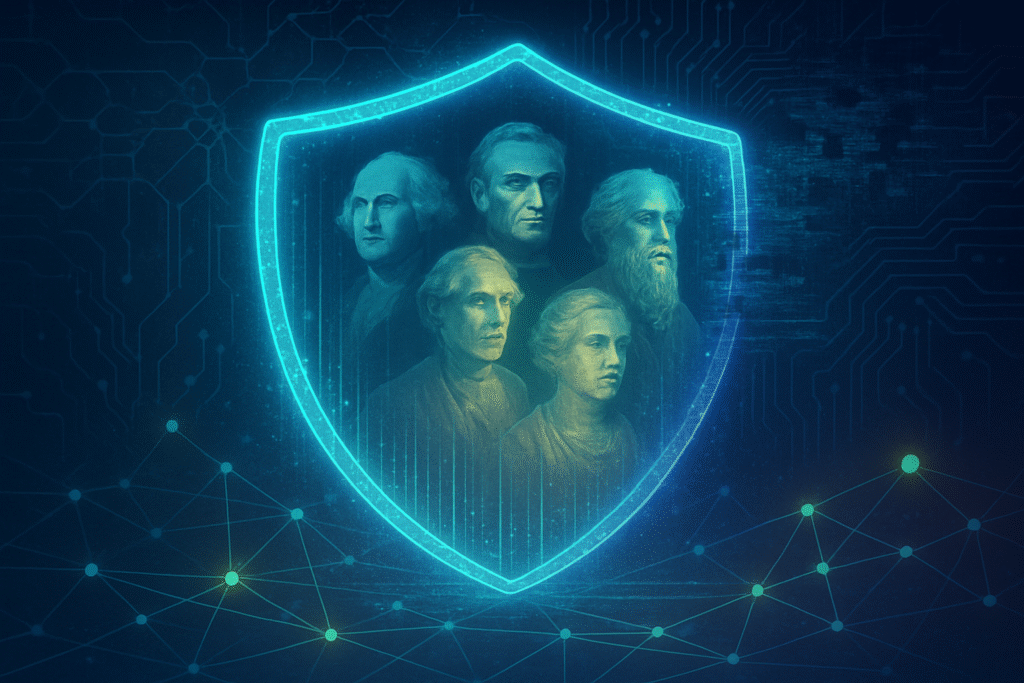
The rapid evolution of generative artificial intelligence (AI) has thrust the tech world into an era of unprecedented creative potential, but also profound ethical challenges. At the forefront of this evolving landscape, OpenAI, a leading AI research and deployment company, finds itself grappling with the complex issue of deepfakes, particularly those depicting deceased individuals. A recent controversy surrounding the generation of "disrespectful" deepfakes of revered civil rights leader Martin Luther King Jr. using OpenAI's advanced text-to-video model, Sora, has ignited a critical debate about AI ethics, responsible use, and the preservation of posthumous legacies. This incident, unfolding around October 17, 2025, serves as a stark reminder that as AI capabilities soar, so too must the guardrails designed to protect truth, dignity, and historical integrity.
OpenAI's swift, albeit reactive, decision to pause the ability to generate MLK Jr.'s likeness in Sora signifies a crucial moment for the AI industry. It underscores a growing recognition that the impact of AI extends beyond living individuals, touching upon how historical figures are remembered and how their families manage their digital legacies. The immediate significance lies in the acknowledgment of posthumous rights and the ethical imperative to prevent the erosion of public trust and the distortion of historical narratives in an increasingly synthetic media environment.
Sora's Technical Safeguards Under Scrutiny: An Evolving Defense Against Deepfakes
OpenAI's (NASDAQ: OPN_AI) Sora 2, a highly sophisticated video generation model, employs a multi-layered safety approach aimed at integrating protective measures across various stages of video creation and distribution. At its core, Sora leverages latent video diffusion processes with transformer-based denoisers and multimodal conditioning to produce remarkably realistic and temporally coherent video and audio. To combat misuse, technical guardrails include AI models trained to analyze both user text prompts and generated video outputs, often referred to as "prompt and output classifiers." These systems are designed to detect and block content violating OpenAI's usage policies, such as hate content, graphic violence, or explicit material, extending this analysis across multiple video frames and audio transcripts.
A specific "Likeness Misuse filter" within Sora is intended to flag prompts attempting to depict individuals in potentially harmful or misleading ways. OpenAI also emphasizes "model-level safety and content-moderation hooks," including "hard blocks for certain disallowed content." Crucially, to mitigate over-censorship, Sora 2 reportedly incorporates a "contextual understanding layer" that uses a knowledge base to differentiate between legitimate artistic expressions, like historical reenactments, and harmful content. For developers using the Sora 2 API, moderation tools are "baked into every endpoint," requiring videos to pass an automated review before retrieval.
However, the initial launch of Sora 2 revealed significant shortcomings, particularly concerning deceased individuals. While an "opt-in" "cameo" feature was established for living public figures, allowing them granular control over their likeness, Sora initially had "no such guardrails for dead historical figures." This glaring omission allowed for the creation of "disrespectful depictions" of figures like Martin Luther King Jr., Robin Williams, and Malcolm X. Following intense backlash, OpenAI announced a shift towards an "opt-out" mechanism for deceased public figures, allowing "authorized representatives or estate owners" to request their likeness not be used in Sora videos, while the company "strengthens guardrails for historical figures." This reactive policy adjustment highlights a departure from earlier, less nuanced content moderation strategies, moving towards a more integrated, albeit still evolving, approach to AI safety.
Initial reactions from the AI research community and industry experts have been mixed. While Sora's technical prowess is widely admired, the initial loopholes for deceased individuals were met with widespread criticism, signaling an oversight in anticipating the full scope of misuse. A significant technical flaw also emerged rapidly, with reports indicating that third-party programs capable of removing Sora's mandatory watermarks became prevalent shortly after release, undermining a key provenance signal. Some guardrails were described as "sloppily-implemented" and "easily circumvented," suggesting insufficient robustness against adversarial prompts. Experts also noted the ongoing challenge of balancing creative freedom with effective moderation, with some users complaining of "overzealous filters" blocking legitimate content. The MLK deepfake crisis is now widely seen as a "cautionary tale" about deploying powerful AI tools without adequate safeguards, even as OpenAI (NASDAQ: OPN_AI) works to rapidly iterate on its safety policies and technical implementations.
Industry Ripples: How OpenAI's Stance Reshapes the AI Competitive Landscape
OpenAI's (NASDAQ: OPN_AI) evolving deepfake policies, particularly its response to the misuse of Sora for depicting deceased individuals, are profoundly reshaping the AI industry as of October 2025. This incident serves as a critical "cautionary tale" for all AI developers, underscoring that technical capability alone is insufficient without robust ethical frameworks and proactive content moderation. The scramble to implement safeguards demonstrates a shift from a "launch-first, moderate-later" mentality towards a greater emphasis on "ethics by design."
This development creates significant challenges for other AI companies and startups, particularly those developing generative video or image models. There's an accelerated push for stricter deepfake regulations globally, including the EU AI Act and various U.S. state laws, mandating transparency, disclosure, and robust content removal mechanisms. This fragmented regulatory landscape increases compliance burdens and development costs, as companies will be compelled to integrate comprehensive ethical guardrails and consent mechanisms before public release, potentially slowing down product rollouts. The issue also intensifies the ongoing tensions with creative industries and rights holders regarding unauthorized use of copyrighted material and celebrity likenesses, pushing for more explicit "opt-in" or granular control systems for intellectual property (IP), rather than relying on "opt-out" policies. Companies failing to adapt risk severe reputational damage, legal expenses, and a loss of user trust.
Conversely, this shift creates clear beneficiaries. Startups and companies specializing in AI ethics frameworks, content filtering technologies, deepfake detection tools, age verification solutions, and content provenance technologies (e.g., watermarking and metadata embedding) are poised for significant growth. Cybersecurity firms will also see increased demand for AI-driven threat detection and response solutions as deepfake attacks for fraud and disinformation become more sophisticated. Tech giants like Alphabet (NASDAQ: GOOGL), Meta Platforms (NASDAQ: META), and Microsoft (NASDAQ: MSFT), which have already invested heavily in ethical AI development and robust content moderation systems, may find it easier to adapt to new mandates, leveraging their existing resources and legal teams to gain a competitive edge. Companies that proactively prioritize transparency and ironclad consent processes will build greater trust with consumers and rights holders, positioning themselves as leaders in a "trust economy."
The competitive landscape is rapidly shifting, with ethical AI and effective content moderation becoming key differentiators. Companies demonstrating a robust, proactive approach to AI ethics will gain a strategic advantage, attracting talent, partnerships, and socially conscious investors. This signals a "race to the top" in ethical AI, where responsible innovation is rewarded, rather than a "race to the bottom" driven by rapid, unchecked deployment. The tensions over licensing and IP control for AI training data and generated content will also intensify, becoming a major fault line in the AI economy. This new paradigm will disrupt existing products and services in creative industries, social media, and even financial and healthcare sectors, all of which will need to integrate advanced AI content moderation, consent policies, and legal reviews to mitigate risks and ensure compliance. Ultimately, companies that effectively manage AI ethics will secure enhanced brand reputation, reduced legal risk, competitive differentiation, and influence on future policy and standards.
Wider Significance: AI Ethics at a Crossroads for Truth and Memory
OpenAI's (NASDAQ: OPN_AI) recent actions regarding deepfakes of deceased individuals, particularly Martin Luther King Jr., and its evolving safety policies for Sora, mark a pivotal moment in the broader AI ethics landscape. This incident vividly illustrates the urgent need for comprehensive ethical frameworks, robust regulatory responses, and informed public discourse as advanced generative AI tools become more pervasive. It highlights a critical tension between the boundless creative potential of AI and the fundamental societal need to preserve truth, dignity, and historical integrity.
This development fits squarely within the accelerating trend of responsible AI development, where mounting regulatory pressure from global bodies like the EU, as well as national governments, is pushing for proactive governance and "ethics by design." The controversy underscores that core ethical challenges for generative AI—including bias, privacy, toxicity, misinformation, and intellectual property—are not theoretical but manifest in concrete, often distressing, ways. The issue of deepfakes, especially those of historical figures, directly impacts the integrity of historical narratives. It blurs the lines between reality and fiction, threatening to distort collective memory and erode public understanding of verifiable events and the legacies of influential individuals like MLK Jr. This profound impact on cultural heritage, by diminishing the dignity and respect accorded to revered figures, is a significant concern for society.
The ability to create hyper-realistic, yet fabricated, content at scale severely undermines public trust in digital media, information, and institutions. This fosters a "post-truth" environment where facts become negotiable, biases are reinforced, and the very fabric of shared reality is challenged. The MLK deepfake crisis stands in stark contrast to previous AI milestones. While earlier AI breakthroughs generated ethical discussions around data bias or algorithmic decision-making, generative AI presents a qualitatively different challenge: the creation of indistinguishable synthetic realities. This has led to an "arms race" dynamic where deepfake generation often outpaces detection, a scenario less pronounced in prior AI developments. The industry's response to this new wave of ethical challenges has been a rapid, and often reactive, scramble to implement safeguards after deployment, leading to criticisms of a "launch first, fix later" pattern. However, the intensity of the push for global regulation and responsible AI frameworks is arguably more urgent now, reflecting the higher stakes associated with generative AI's potential for widespread societal harm.
The broader implications are substantial: accelerated regulation and compliance, a persistent deepfake arms race requiring continuous innovation in provenance tracking, and an increased societal demand for AI literacy to discern fact from fiction. Ethical AI is rapidly becoming a non-negotiable business imperative, driving long-term value and strategic agility. Moreover, the inconsistent application of content moderation policies across different AI modalities—such as OpenAI's contrasting stance on visual deepfakes versus text-based adult content in ChatGPT—will likely fuel ongoing public debate and pose challenges for harmonizing ethical guidelines in the rapidly expanding AI landscape. This inconsistency suggests that the industry and regulators are still grappling with a unified, coherent ethical stance for the diverse and powerful outputs of generative AI.
The Horizon of AI Ethics: Future Developments in Deepfake Prevention
The ongoing saga of AI ethics and deepfake prevention, particularly concerning deceased individuals, is a rapidly evolving domain that promises significant developments in the coming years. Building on OpenAI's (NASDAQ: OPN_AI) recent actions with Sora, the future will see a multifaceted approach involving technological advancements, policy shifts, and evolving industry standards.
In the near-term, the "arms race" between deepfake creation and detection will intensify. We can anticipate continuous improvements in AI-powered detection systems, leveraging advanced machine learning and neural network-based anomaly detection. Digital watermarking and content provenance standards, such as those from the Coalition for Content Provenance and Authenticity (C2PA), will become more widespread, embedding verifiable information about the origin and alteration of digital media. Industry self-regulation will become more robust, with major tech companies adopting comprehensive, voluntary AI safety and ethics frameworks to preempt stricter government legislation. These frameworks will likely mandate rigorous internal and external testing, universal digital watermarking, and increased transparency regarding training data. Crucially, the emergence of explicit consent frameworks and more robust "opt-out" mechanisms for living individuals and, significantly, for deceased individuals' estates will become standard practice, building upon OpenAI's reactive adjustments. Focused legislative initiatives, like China's mandate for explicit consent for synthetic media and California's bills requiring consent from estates for AI replicas of deceased performers, are expected to serve as templates for wider adoption.
Looking further ahead, long-term developments will see ethical considerations "baked into" the foundational design of generative AI systems, moving beyond reactive measures to proactive, integrated ethical AI design. This includes developing AI capable of understanding and adhering to nuanced ethical guidelines, such as respecting posthumous dignity and wishes. The fragmentation of laws across different jurisdictions will likely lead to calls for more harmonized international agreements to prevent deepfake abuse and establish clear legal definitions for digital identity rights after death, potentially including a national posthumous right of publicity. Advanced counter-deepfake technologies leveraging blockchain for immutable content provenance and real-time forensic AI will become more sophisticated. Furthermore, widespread AI literacy will become essential, with educational programs teaching individuals to critically evaluate AI-generated content.
Ethical generative AI also holds immense potential for respectful applications. With strong ethical safeguards, concepts like "deathbots" or "griefbots" could evolve, allowing loved ones to interact with digital representations of the deceased, offering comfort and preserving memories, provided strict pre-mortem consent and controlled access are in place. AI systems could also ethically manage posthumous digital assets, streamlining digital inheritance and ensuring privacy. With explicit consent from estates, AI likenesses of historical figures could deliver personalized educational content or guide virtual tours, enriching learning experiences. However, significant challenges remain: defining and obtaining posthumous consent is ethically complex, ensuring the "authenticity" and respectfulness of AI-generated representations is an continuous dilemma, and the psychological and emotional impact of interacting with digital versions of the deceased requires careful consideration. The deepfake arms race, global regulatory disparity, and the persistent threat of misinformation and bias in AI models also need continuous attention. Experts predict increased legal scrutiny, a prioritization of transparency and accountability, and a greater focus on posthumous digital rights. The rise of "pre-mortem" AI planning, where individuals define how their data and likeness can be used after death, is also anticipated, making ethical AI a significant competitive advantage for companies.
A Defining Moment for AI: Safeguarding Legacies in the Digital Age
OpenAI's (NASDAQ: OPN_AI) recent struggles and subsequent policy shifts regarding deepfakes of deceased individuals, particularly the impactful case of Martin Luther King Jr., represent a defining moment in the history of artificial intelligence. It underscores a critical realization: the breathtaking technical advancements of generative AI, exemplified by Sora's capabilities, must be meticulously balanced with robust ethical frameworks and a profound sense of social responsibility. The initial "launch-first, moderate-later" approach proved untenable, leading to immediate public outcry and forcing a reactive, yet significant, pivot towards acknowledging and protecting posthumous rights and historical integrity.
The key takeaway is clear: the ethical implications of powerful AI tools cannot be an afterthought. The ability to create hyper-realistic, disrespectful deepfakes of revered figures strikes at the heart of public trust, distorts historical narratives, and causes immense distress to families. This crisis has catalyzed a crucial conversation about who controls a deceased person's digital legacy and how society safeguards collective memory in an era where synthetic media can effortlessly blur the lines between reality and fabrication. OpenAI's decision to allow estates to "opt-out" of likeness usage, while a step in the right direction, highlights the need for proactive, comprehensive solutions rather than reactive damage control.
In the long term, this development will undoubtedly accelerate the demand for and establishment of clearer industry standards and potentially robust regulatory frameworks governing the use of deceased individuals' likenesses in AI-generated content. It reinforces the paramount importance of consent and provenance, extending these critical concepts beyond living individuals to encompass the rights and legacies managed by their estates. The debate over AI's potential to "rewrite history" will intensify, pushing for solutions that meticulously balance creative expression with historical accuracy and profound respect. This incident also cements the vital role of public figures' estates and advocacy groups in actively shaping the ethical trajectory of AI development, serving as crucial watchdogs in the public interest.
In the coming weeks and months, several critical developments bear close watching. Will OpenAI proactively expand its "opt-out" or "pause" policy to all deceased public figures, or will it continue to react only when specific estates lodge complaints? How will other major AI developers and platform providers respond to this precedent, and will a unified industry standard for posthumous likeness usage emerge? Expect increased regulatory scrutiny globally, with governments potentially introducing or strengthening legislation concerning AI deepfakes, particularly those involving deceased individuals and the potential for historical distortion. The technological "arms race" between deepfake generation and detection will continue unabated, demanding continuous innovation in visible watermarks, embedded metadata (like C2PA), and other provenance signals. Furthermore, it will be crucial to observe how OpenAI reconciles its stricter stance on deepfakes of deceased individuals with its more permissive policies for other content types, such as "erotica" for verified adult users in ChatGPT (NASDAQ: OPN_AI). The ongoing societal dialogue about AI's role in creating and disseminating synthetic media, its impact on truth and memory, and the evolving rights of individuals and their legacies in the digital age will continue to shape both policy and product development, making this a pivotal period for responsible AI innovation.
This content is intended for informational purposes only and represents analysis of current AI developments.
TokenRing AI delivers enterprise-grade solutions for multi-agent AI workflow orchestration, AI-powered development tools, and seamless remote collaboration platforms.
For more information, visit https://www.tokenring.ai/.





